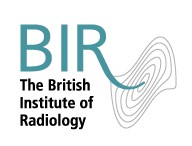The BIR is delighted to support Ask for Evidence, a campaign to encourage companies, politicians, commentators and official bodies to be accountable for scientific research and to inspire the public to question claims made in the media about scientific research. Dr Nassim Parvizi looks at the issue of X-ray risks.
Most of us assume that evidence is at the heart of policies and procedures that keep us from harm and help us get better when we’re sick. But simply because we assume that evidence has played a part, doesn’t mean we shouldn’t ask for evidence to check.
With the help of Sense About Science and the BIR I set out to ask for evidence behind some of the guidance given at radiology departments around the UK.
I contacted ten trusts in the UK to inquire how they regulate their radiology departments in terms of radiation protection for pregnant visitors and to see if there is any consistency as well as the evidence given to the general public. I asked each trust the following question:
“My child needs an X-ray and I would like to be with her during the procedure, but I’m pregnant—will I be allowed in?”
I followed this up with asking whether I would need to wear any protective clothing—and if not, why not?
The scenario expanded to say that I was 10–12 weeks pregnant and wanted to accompany my 8-month-old child for a chest X-ray as recommended by the GP. Several departments had administrative staff respond to my query saying that they would seek advice from radiographers, a couple from the superintendent and one from a radiologist. Overall the responses were consistent and there was no significant discrepancy between the different responses.
The general consensus was for me to either stand behind a lead screen in the room or I was advised against being in the main room given the radiation risk to my unborn baby and myself. Furthermore, they suggested preferentially sending my child with my partner/friend/family member who was not pregnant. When I stated I was quite keen to stay with my child to hold her, the various departments stated this was not possible and so a member of staff could hold the child whilst wearing personal protective clothing. None of the trusts suggested staying in the main room or holding the baby during the procedure. One responder said that I could hold my baby whilst wearing a lead apron, however, was unsure and so we would have to check on the day when attending for the examination.
The evidence stated was that both distance and “coverage”, i.e. shielding, are important for reducing radiation exposure and improving protection, especially for unborn babies given the potentially significant harm from radiation exposure both during foetal development and in later life.
The results of the survey were fairly consistent. However, would the results have been different if the question had been phrased differently? How would your trust answer the question, “If my child is uncooperative, will I be able to hold my child to ensure you get a good image, even if I’m 12 weeks pregnant?” If the answer is “no”, why not? How would you respond? Does your organisation have a policy on this? Please respond to this blog or email communications@bir.org.uk.
About Dr Nassim Parvizi
Nassim Parvizi completed her undergraduate medical training at Imperial College, London. She started her training as an academic foundation trainee in the North West Thames Foundation School in 2010, during which she was involved in translational clinical trials using hormones for appetite suppression.
She was actively involved with quality and safety improvement projects aiming to improve healthcare and deliver better patient care. She undertook a secondment as part of the NHS Medical Director’s Clinical Fellow Scheme at the Medicines and Healthcare products Regulatory Agency during 2012.
Nassim is currently an academic clinical fellow and specialist registrar in Clinical Radiology at the Oxford University Hospitals NHS Trust

